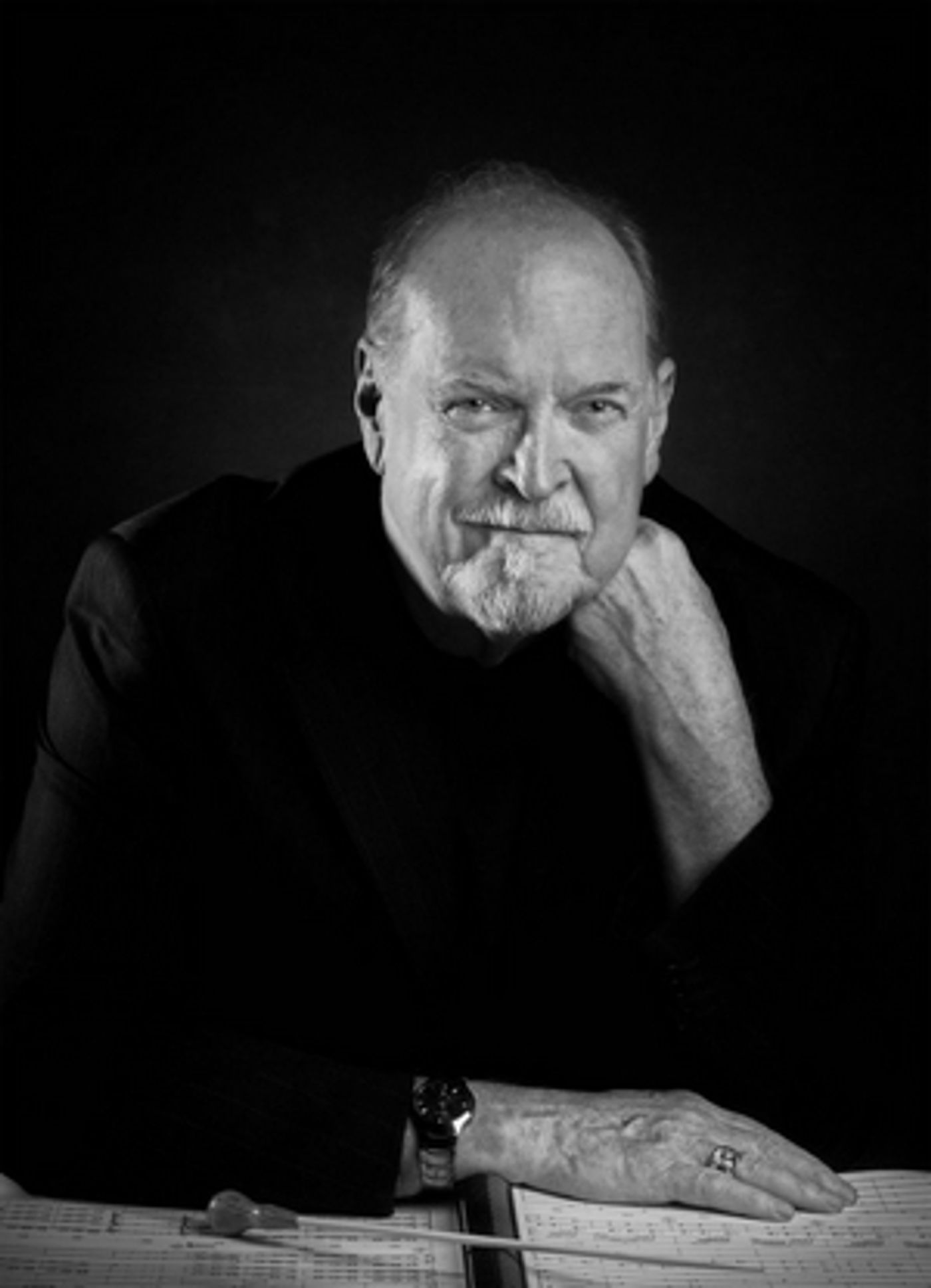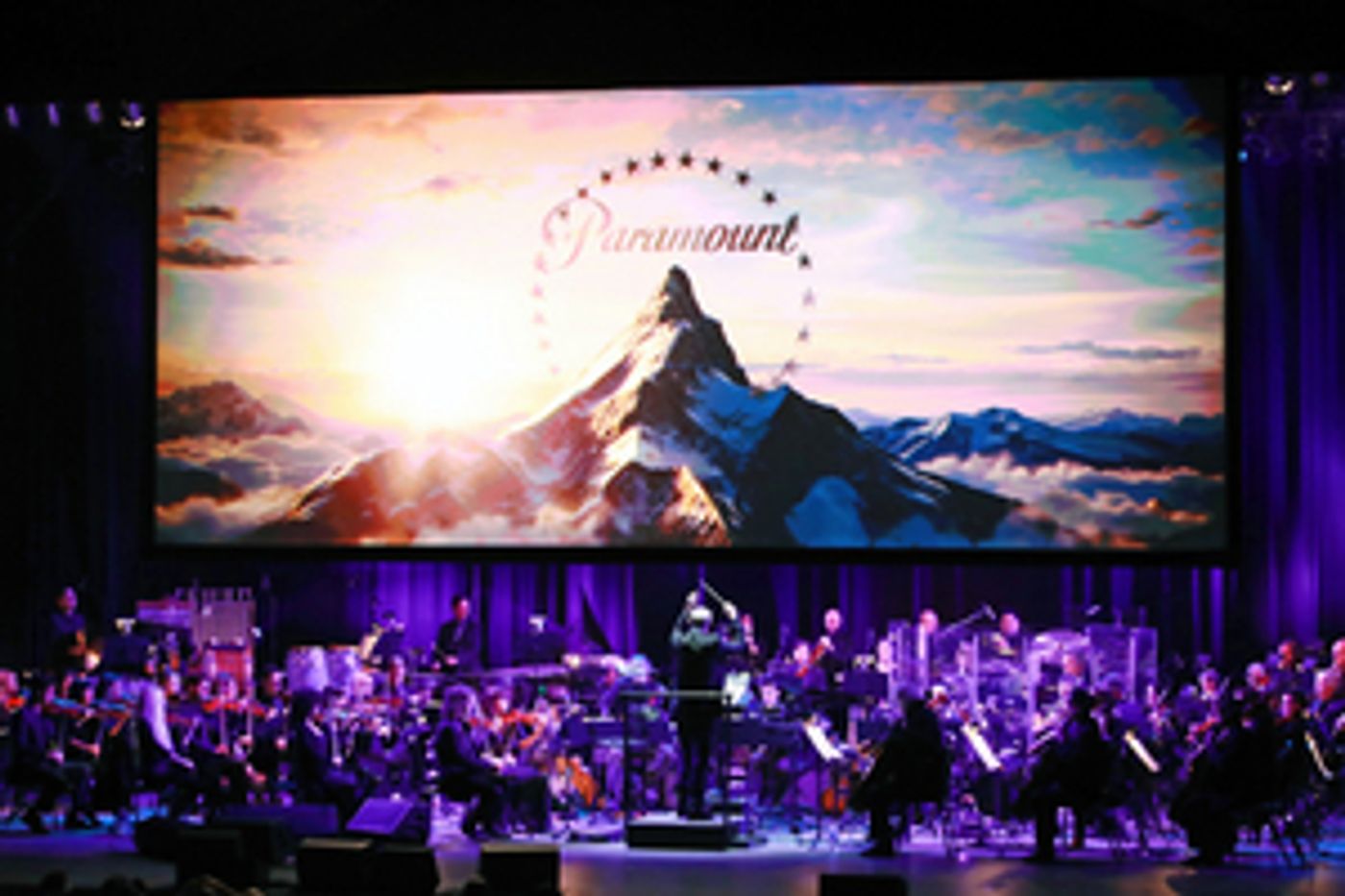Interview: Composer and Film Conductor John Beal Talks Rocketman: Live in Concert
 Composer and film conductor John Beal took the time to speak with us about his career and Rocketman: Live in Concert.
Composer and film conductor John Beal took the time to speak with us about his career and Rocketman: Live in Concert.
Tell us a bit about your background. How did you decide to become a composer and a film conductor?
I grew up in a home filled with music; everything from classical to jazz and pop standards of the day. I was like one of those kids you see on YouTube, conducting orchestral music in the living room. My grandfather had worked on Toscanini's famous RCA concerts and helped design the multichannel sound for Fantasia. But what set my heart on fire regarding music to film was being able to sit with family friend, famed theater organist Gaylord Carter as he improvised amazing scores to the classic silent films. Then our neighbor, award-winning composer George Duning, took me to his scoring sessions. At that moment, I knew this was where I wanted to be.
How did you become the Principal Conductor for the Hollywood Symphony Orchestra?
I began conducting orchestras around the world in my early twenties and have spent significant time in the studios conducting film and television music. I was asked to produce the premiere concerts of the Hollywood Symphony Orchestra and we had some amazing concerts, debuting music from John Williams and other great composers. When our artistic director moved on, it fell to me to keep the level up. Working with these fabulous musicians in my home town is an honor and always a very special treat.
You've conducted a number of live-to-film scores, what is it about these that you enjoy?
Conducting an entire film score in perfect synchronization with a major orchestra is in itself a tremendously challenging and exciting process, but the best part is the audience involvement. The energy in the room is palpable and to hear the oohs and ahhs, the laughter, the breathless moments of surprise or deep emotional response; this is what performing on stage is all about, and I truly love it. People who have never heard a symphony orchestra come to me afterward with tears of joy. That is an unbeatable moment that I will forever cherish.
Carousel of Progress is one of my favorites at Disney World, so I have to ask, what was it like creating music for that attraction?
I came in near the end of the Carousel of Progress run and wasn't responsible for the wonderful songs. It's been so long, I don't remember exactly which section I worked on, but it was with the amazing Buddy Baker who composed such wonderful music both in the theme parks and on The Wonderful World of Disney television programing. It was my first experience in the big Disney scoring studio and it was quite overwhelming to be on the stage where so much great music had been recorded. This led to my work on America Sings and Country Bear Jamboree, followed by music directing the opening of Walt Disney World. I shall always be grateful for Buddy's mentoring.
You recently debuted Rocketman: Live in Concert with Elton John and Bernie Taupin, tell us about that!
Elton John's first album completely changed the world of popular music for me. The perfect combination of Bernie's lyrics and Sir Elton's music was astonishing. The movie is wonderful, the music is incredible, and actor Taron Egerton nails the essence of their genius. Working with producer Giles Martin was a highlight of the experience and the orchestra had a truly fabulous time. Everything came together perfectly!
 What was it like working with Elton John and Bernie Taupin?
What was it like working with Elton John and Bernie Taupin?
To be asked to conduct the world premiere of the movie of Sir Elton's life was a privilege I cannot overstate, and the honor of sharing the stage with this genius was unforgettable. Sir Elton was gracious backstage and, while he was singing with Taron, kept looking over and throwing sort of "check this out" grins at me as he'd play some incredible riff on the piano.
How long did it take to create this concert? What was the process like?
The concept of the concert was well along when I was asked to come on board, but our part of the production took about eight weeks. We received from music producer Giles Martin the very sensitive scoring cues by composer Matthew Margeson, the rock band tracks Giles had produced, and the sweetening arrangements from orchestrator Ben Foster. Every note of the band tracks played by every musician had to be transcribed by ear, the score had to be assembled in its linear form to match the movie, and we had to create a conductor video with streamers and flashes to help me keep everything in perfect synch with the movie. The team that worked on this was truly wonderful under extreme pressure and the demands I was making for exactness. I am grateful for their professionalism.
You've composed and conducted for a variety of genres, is there one you tend to gravitate toward more?
As a composer for hire, the choice of genre was a case of being able to do whatever came through the door. It was all amazing. One week might be over the top dramatic classical, the next Zydeco or big band jazz. As a conductor, I would be hard pressed to say I have any more favorite music to conduct than that of the world's greatest media composers, starting with the genius that is John Williams.
Is there one person you'd love to collaborate with that you haven't had a chance to yet?
Yes. The next genius and the one after that. Not to be glib, but there are some amazing composers coming forward every day. I want to work with every one of them!
When you're not composing or conducting, what do you enjoy doing?
My wife and I love movies, plays, and attending live-to-picture concerts that friends conduct, but there is nothing that brings me more peace and joy outside of music than spending time by the Pacific Ocean in our getaway place that is surrounded by Carmel-by-the-Sea, Pebble Beach, and Monterey Bay. It's where my grandparents lived, my parents retired and where my wife and I got married. It is our own private paradise.
Do you have any advice for anyone pursuing music as a career, like anything you wish you knew when you were starting out?
We didn't have today's amazing media music education centers when I was young. So much of what I learned I had to learn one-on-one with mentors and musicians. It's a rapidly evolving business. Learning how to understand and evolve with that is critical for young musicians. But study everything you can about all aspects of your art. You don't have to be an expert in every area, but you need to know how it works and how to get the best from yourself and those you ask to support you. Find that of which you are a natural master and dig deeply into that. Be open to a path you might not have dreamed of, but which might bring you an amazing career.
My most important advice? Don't forget to actually have a life outside of music. It will help you bring more to what you do in music. There's a great big, beautiful world out there. Don't miss it!
PHOTOS COURTESY OF JOHN BEAL
Videos

